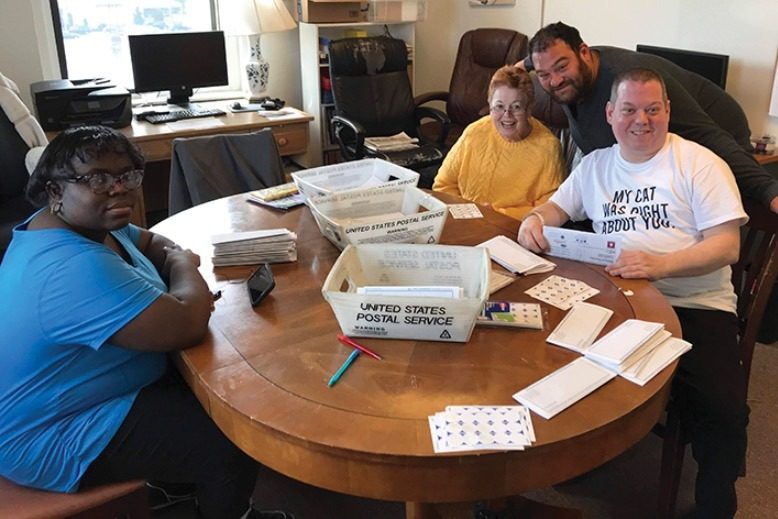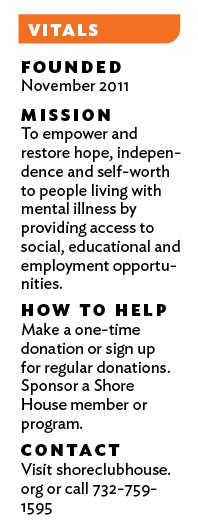
Kerri Zeblisky wanted to feel like a person again. She had spent years after her mental illness diagnoses in medically modeled support programs that, while helpful, left her feeling stuck in “patient mode.” The 45-year-old needed an in-between place where she could find support in her transition out of patienthood and into personhood. That’s what she found in Shore House, a nonprofit in Long Branch dedicated to helping Monmouth County adults living with mental illnesses like PTSD, borderline personality disorder, or general anxiety disorder adjust to life among the general population.
“At the Shore House, I’m not always seen as my illness. There, I leave my illness at the door,” says Zeblisky, who lives on her own in Long Branch, but has been a Shore House member since 2012. She is one of the organization’s longest-running participants.
Opened in 2011, Shore House is an accredited community clubhouse. While hospital and outpatient programs for those with mental illness deal mainly with coping skills, stability, and medication management, clubhouses focus on lowering rehospitalization rates and linking members back to their community. “We provide recovery supports, and we do it in three very specific ways: through education, through employment, and through socialization,” says Susan Mazzeo, executive director of Shore House.
 With the clubhouse model, clients are members, not patients. “When you’re a member of a club, you know you’re needed, you’re wanted, and you’re expected to be there,” says Mazzeo. “That’s our mantra.” Clubhouse membership is free, voluntary and lifelong.
With the clubhouse model, clients are members, not patients. “When you’re a member of a club, you know you’re needed, you’re wanted, and you’re expected to be there,” says Mazzeo. “That’s our mantra.” Clubhouse membership is free, voluntary and lifelong.
[RELATED: A Supportive Shelter for LGBTQ Young Adults]
In a typical Shore House day, members can work alongside staff at kitchen or clerical work, depending on their interests. “You’re looked at for your strengths,” says Zeblisky, who opts to spend her days in the kitchen unit. “If you don’t know something, you’re taught and trained. Nobody gives up on you.” The work is voluntary, but sticking with a schedule creates accountability and routine.
Clerical workers answer phones, give tours, pay the bills, or create the newsletter and newscast. Kitchen workers operate the snack bar and prepare meals. Each task has transferable skills that members can take back into the workforce.
Shore House also helps members find employment with support that fits individual needs. Once a month, members gather for a social outing—to a movie or a sculpture garden, for example. Throughout the Covid-19 pandemic, Shore House has been hosting weekly Zoom calls to keep members in touch.
More than 300 such clubhouses operate worldwide, but the Shore House is the only Clubhouse International–certified location in New Jersey. Zeblisky would like to see that change. “I like to call us ‘the little clubhouse that could,’” she says. “I hope that by pushing forward, other clubhouses will follow.”
